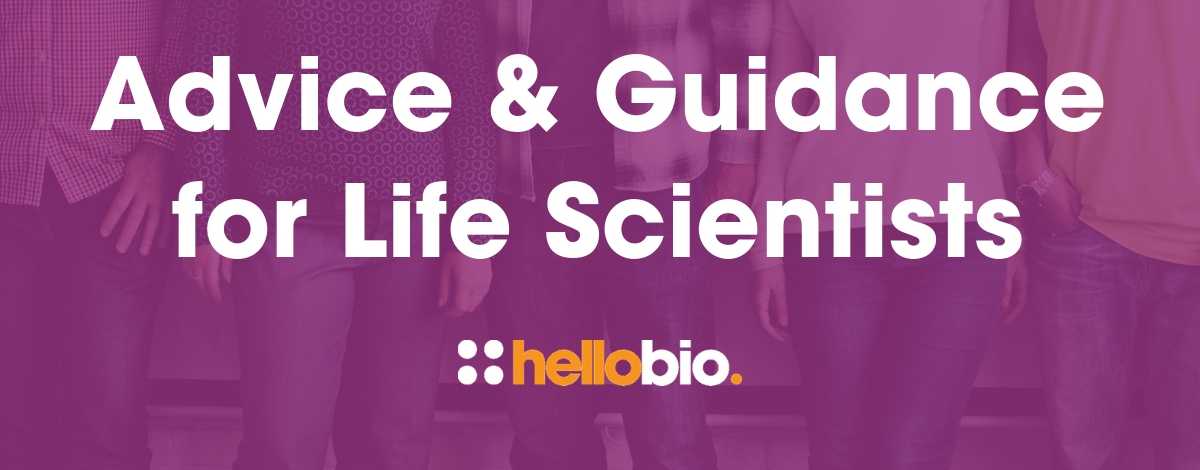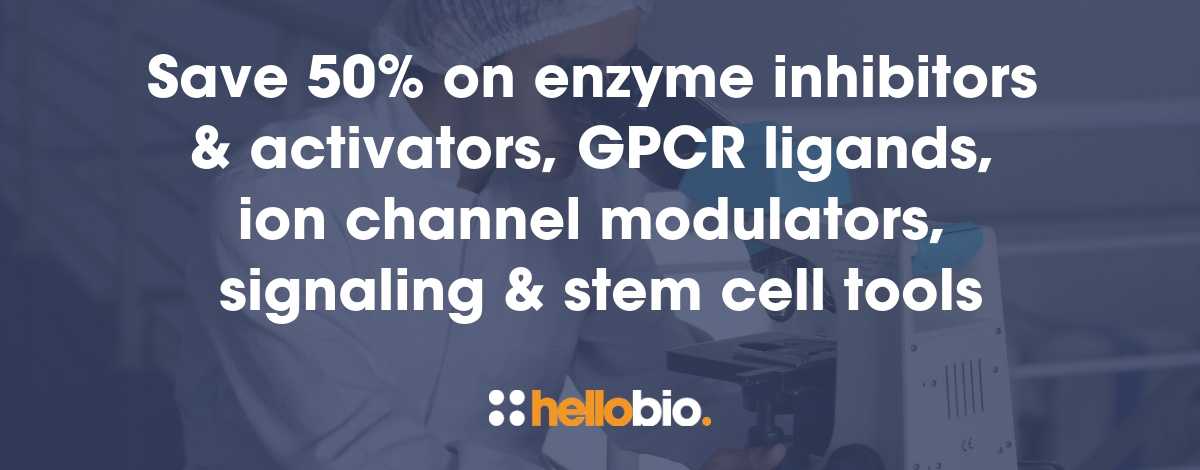Celebrating Women In Life Science on International Women’s Day
It’s International Women’s Day on 8th March and to celebrate, we’ve looked back on conversations and interviews with our life scientist community to put together this roundup of inspiring women working in life science.
It’s important to have role models in science, as it is in any career. It’s important that we have scientists we identify with to look up to; scientists who motivate and inspire us to keep going by seeing their achievements. It’s been brilliant to hear so many life scientists telling us about the women in science who have positively impacted their lives and work.
From women they’ve worked with, to women they’ve looked up since the start of their careers, here’s a shout out to the amazing women in life science who’ve been mentioned on our blog over the last year.
The need for female role models in science
One of the biggest challenges of being a woman in science is balancing family life alongside a career in the lab. Lots of the scientists we spoke to acknowledged the determination this takes, and how much it mattered to them to see women doing both.
Rebecca San Gil, a postdoc at Queensland Brain Institute told us: “I admire all women working at all levels of academia. In particular women working at the highest levels have shown dedication, motivation, and perseverance that are inspiring to me and the younger generations of female scientists moving through the ranks.”

Maria Diehl, a postdoc the University of Puerto Rico School of Medicine, agrees: “I would have to say any female scientist that can juggle running a lab, raising kids, and having time for herself is my hero.”

Women scientists we admire from afar
Most of us had a hero when we were growing up, someone who inspired us to pursue a scientific career path. For young women, this is especially important. As American activist Marian Wright Edelman said: “You can’t be what you can’t see”.
Chloe Thomas, a PhD at the University of Birmingham, told us that one of her inspirations was Dr Susan Greenfield. Chloe said: “When I was in sixth form I read her book The Human Brain: A Guided Tour and thought the brain sounded really cool. I like how she can engage the public with science and the accessibility of her books and public lectures for people with an interest but little knowledge of neuroscience.”

For Madison Fletcher, postdoctoral research associate at the University of California Irvine, Nobel Prize-winning Frances Arnold is one of her inspirations. She said: “Frances Arnold and her lab at CalTech are doing terribly creative and surprising work with directed evolution. (I promise I wrote this before the Nobel Prize announcement!) It seems like every week there is an article with some new remarkable chemical transformations being performed by enzymes. They are pushing the frontiers of directed evolution, synthetic biology, and chemistry alike.”

Sometimes, we’re even lucky enough to meet our heroes! Agnes Solari, a PhD Student at the University of Genova, told us that Elena Cattaneo, Italian pharmacologist and co-founding director of Center for Stem Cell Research at the University of Milan is her biggest inspiration: “I had the pleasure of meeting [Elena] at Stem Cells for Neurodegenerative Diseases in Rome. She is a strong woman, politically engaged in Parliament, and internationally recognised for her major commitment to research ethics and research policy, and for increasing knowledge and engagement in research among the general public.”
Women scientists we’ve worked with
There are the female scientists we’ve admired from afar, who gave us inspiration and determination to pursue our goals, and there are those we’ve worked with who’ve had a direct impact on our career and our research.
Lucy Lewis, a PhD student studying Behavioural Neuroscience at Cardiff University told us: “There are so many fantastic scientists, but one that has had a personal impact on my science career is Dr Mariah Lelos, of the Brain Repair Group in Cardiff … It’s important to have a female inspiration in science, and Mariah’s dedication and enthusiasm both to her research, my project and all of the other things she had going on, really encouraged me to pursue this career path, and definitely contributed to my aspiration to become a great scientist.”

Rachelle Balez, a PhD student at the Illawarra Health and Medical Research Institute, whose work focuses on understanding Alzheimer’s disease by generating brain cells from patient skin cells, told us: “I admire my supervisor, Dr Lezanne Ooi, as she is an absolute powerhouse. I was one of her first students and over the course of my honours project and PhD I have watched her bring in high profile grants, establish and grow her lab, as well as start a family.
“Dr Ooi has always encouraged me to take up opportunities outside of my PhD, like becoming involved in scientific societies, community engagement activities and science communication. I really appreciate this as not only have I have found these activities highly rewarding, I also believe scientists have a responsibility to share their research with the non-scientific community as science underpins and informs so many aspects of our lives.”

Christina Murray, a postdoctoral research associate at the UCL Dementia Research Institute, also told that her supervisor, Dr Tammaryn Lashley, is a huge inspiration: “She produces great science on frontotemporal dementia and manages to juggle working on many collaborative projects at once, whilst also keeping her many students happy and being a fantastic mum to her three children. If I can work as well as she can as I move forward in my career, then I will be happy.”
Our Lab Heroes of 2018
We had so many incredible female scientists nominated for our Lab Heroes Awards 2018. It was tough to choose from so many phenomenal nominations, and we couldn’t write this post without shouting out to all of you! We were delighted to name Elisabeth Paul as one of our runners up, and Dr Enitome Bafor as our overall winner.
In her nomination for Elisabeth, Leah Mayo from CSAN, Linköping University, Sweden said: “Her scientific contributions to the lab cannot be understated. However, perhaps more importantly, some of her greatest contributions are those that extend beyond the daily workings of the lab. She is the first to welcome new students and lab members, always making sure they feel acclimated as quickly as possible. She encourages all lab members to join social events outside the lab, often hosting or organizing events herself. Moreover, she ensures that we all celebrate the small victories, such as finishing a study or submitting a manuscript. The daily pressures of science can definitely be tiresome, but Elisabeth's contributions, both scientifically and socially, have made our lab a better place. She absolutely deserves to be recognized as a Lab Hero. We are grateful to have worked alongside her and are all excited to see how her career develops during her PhD and beyond.”
And in her nomination for Dr Bafor, Taiye Oluyole from University of Benin, Nigeria said: “Dr Enitome Bafor is a researcher par excellence, dedicated, focused, and goals-oriented. She has done so much research work on reproductive health and also broadened research scope for upcoming researchers in reproductive health. Dr Bafor is a ray of hope to young researchers. She is a mentor and a supervisor to many students with interest in her research area. Coming from a developing country like Nigeria with little resources, she is still able to make do with the little resources to achieve great laboratory results in the lab.”
And finally, there's our amazing community
And of course, all of us at Hello Bio would personally like to thank and recognise all of the inspiring women scientists who have been so proactive in sharing their advice, thoughts and stories with us on our blog over the last year.
You are such a dedicated, passionate group of scientists. Not only are you doing your own amazing things in the lab, you’re also taking time out to support your fellow scientists, sharing your challenges, your successes, your skills and your wisdom with honesty and conviction. Your contributions are invaluable, and are helping so many other scientists.
__________________________
If you enjoyed this...
If you enjoyed reading this article, why not check out the other resources available on our blog. One of the things we’re most passionate about is supporting life scientists, including PhD students, and early career scientists, with their personal and professional development. We know how tough it is in science these days - so we hope you find the resources below helpful!
Advice & guidance for life scientists
Click below to view our range of essential guides and articles to support life scientists:
Travel grants
Every month we give away $500 to PhD students and Postdocs so that they can attend a scientific conference - click below to find out more:
Wellbeing for scientists
Click below for our resources to help improve your wellbeing:
Technical resources
Try our Molarity Calculator: a quick and easy way to calculate the mass, volume or concentration required for making a solution.
Try our Dilution Calculator: an easy way to work out how to dilute stock solutions of known concentrations
Click below to see our Mini-reviews, Pathway Posters & Product Guides: a set of technical resources to answer your questions on a wide range of topics and to help you get started quickly.
And - when you get to the stage of planning your experiments, don't forget that we offer a range of agonists, antagonists, inhibitors, activators, antibodies and fluorescent tools at up to half the price of other suppliers - click below to see how we compare with other suppliers:
Advice from your fellow scientists
Click below to read advice from other scientists:




















